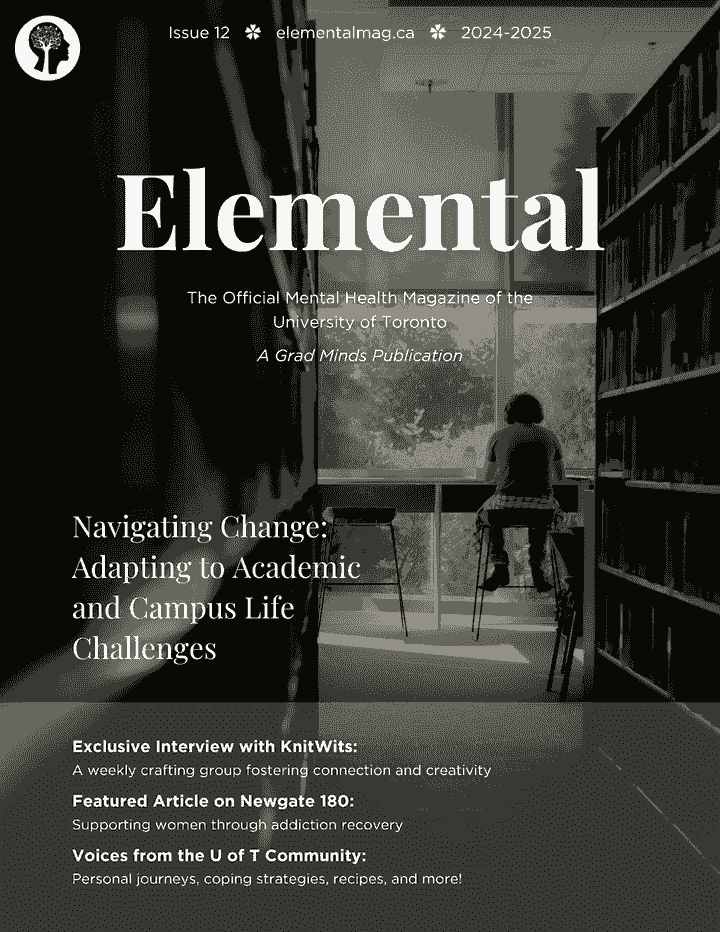

ELEMENTAL
The University of Toronto's Official Mental Health Magazine

About Elemental
Spearheaded by Grad Minds, Elemental is the official tri-campus mental health magazine at the University of Toronto with contributions from students, staff, and faculty.
The initiative is aimed at promoting mental health awareness and fostering a strong community of support at the University and beyond through an educational, collaborative, and empowering communication platform.
Read the Newest Issue Below!

Summer 2025
In this issue, we explore the many ways graduate students experience and adapt to change, whether it is adjusting to a new academic environment, finding balance in times of uncertainty, or embracing personal growth. Reflecting the theme of Navigating Change, the magazine brings together a wide range of voices and formats, including personal stories, coping strategies, poems, recipes, and photography. This issue also highlights feature articles on community care within and beyond the university, alongside creative contributions from graduate students and community members across U of T. We hope it offers moments of reflection, connection, and inspiration as you navigate your own path through graduate life.
Contact Us
For questions and ideas, send an email to mentalhealth@utgsu.ca, or drop us a line down below!

